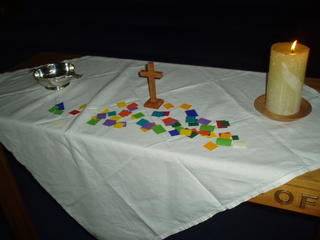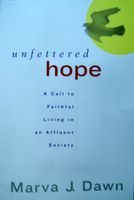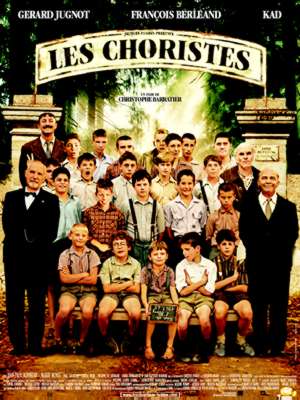With a simple historical reading,
devotio post-moderna(emerging) in part is about questioning. It asks-
how do we handle the text in a txt world ? How to communicate this dangerous text of scripture? Walter Brueggemann states that ‘
The Bible is the compost pile that provides material for new life.’
The Reformation stands in a way for the re-discovery of the living God of the Bible. In a fashion the Reformation arose from a long line of ‘
protestings’ that challenged those aspects of the Christian Church that were concerned with other means of artificial fertilizers at the expense of the ‘compost pile’ to nourish. Historically,
scholasticism which was essentially summed up and strongly optimistic of rational knowledge in handling the text and the methodology applied to faith seeking understanding in many instances degenerated into dry, even ridiculous discussion. Sadly though all it did was over intellectualise and further distance the text from the world. A divorce happened if you like, between theory and practice. The 16th Century’s intellectualsing theology gave rise to a sterile theology and undernourished spirituality. (It must though be said that it was a lively and not all bad, but became so and indeed took root in the later isms tat came with training manuals for right belief and so on. Eg. within Calvin-ism, etc). Perhaps in a similar way the ailing of the Church arises from the lost message in its midst that has been supplanted by so much ‘other stuff’ that has dried it out.
::
Brueggemann (Texts Under Negotiation) proposes a shift from an objective claim of hegemony to a contextual, local perspective. He further states
the end of modernity requires a critique of method in scripture study. It is
clear to me that conventional historical criticism is, in scripture study, our
particular practice of modernity, whereby the text is made to fit our modes of
knowledge and control. As we stand before the text, no longer as its master, but
as its advocate, we will have to find new methods of reading (p11)
This places us with freedom to ‘be our confessing selves in a faith community and that our knowing consists in the actual work of ‘imagination’ which he understands to be the ‘human capacity to picture, portray, receive, and practice the world in ways other than it appears to be at first glance when seen through a dominant habitual unexamined lens.'
The ‘compost pile’ metaphor is useful. For me it means that the lead in to preaching, is as others speak of, a matrix of text, experiences, other readings, others, culture, reason, revelation. All of this enriching us as God’s people freeing us in 'imagination' too. For years now, my contexts have mean me always reading and doing the hard yards some of which never comes out in preached ( for me it is important to have some depth). But also at ways this text allows us to respond, to enter the subversion, the counter drama as Brueggemann says, that enables us, challenges us to respond and participate in God’s presence and purposes for now. This means presenting the text, exploring the text among us through various means. I am further remined of Hans Frei for whom Scripture and community wer key categories for his 'communal hermeneutic' and further the key is not interpretation for abstract knowing sake. Rather it concerns a piety and worship centred on the Jesus of Nazareth, the Christ as centre. So the goal of the 'sermon' is not conclusion, but the ongoing story in which we participate and the ext forms this alternative community of Christ in the 'city'.
::
We have recently completed a journey of threads through Lamentations. Last week we listened, but also used cups/water and a jug in a bringing before God our lament and that of others we knew in visible form of water representative of our tears in the jug. At our Caim (our midweek quiet space) this week our text spoke of being poured out as a drink offering. We used a form of lectio and concluded with symbolically pouring water out into the baptismal bowl and then gathered and anointed with oil as a sign of wholeness and unity as God’s people. We have been seeking to provide daily reading and daily psalms and have the Caim as a place where we gather to do this midweek. It is about allowing the text of scripture to ‘form us’ as God’s people. Indeed, we are re-discovering together, telling our stories, insights around this text in fresh ways that are invigorating. Sundays and Wednesdays and the offering of texts each day we trust will provide the dynamism for the Spirit to re-form us in this place or as Anselm said encourage a ‘
faith seeking understanding in the Triune God’.
[My thoughts here aim to extend thinking in my last post, but also in relation to posts relating
Chris Erdman and
Steve Taylor.]

Erasmus
 Today visited the Farmer's Market in Dunedin. Great atmosphere and meeting folks we know too. Then to New World Supermarket and some odd ends...(a not so nice experience of trolly bashing and car park space stealing by folks)... such a contrast. Then stopped at a fav. coffee shop and sipped, met some more friends. We then called Scotland and spoke with close friends Marjory and Stuart Watson, then listened to Marjory Watson on BBC Radio 2 - Pause for thought.(via Internet). And oh yes started making my gingerbread cut-out houses - samples ready. Lovely aroma! Mmmmm! Packaged and ready now.
Today visited the Farmer's Market in Dunedin. Great atmosphere and meeting folks we know too. Then to New World Supermarket and some odd ends...(a not so nice experience of trolly bashing and car park space stealing by folks)... such a contrast. Then stopped at a fav. coffee shop and sipped, met some more friends. We then called Scotland and spoke with close friends Marjory and Stuart Watson, then listened to Marjory Watson on BBC Radio 2 - Pause for thought.(via Internet). And oh yes started making my gingerbread cut-out houses - samples ready. Lovely aroma! Mmmmm! Packaged and ready now.
















